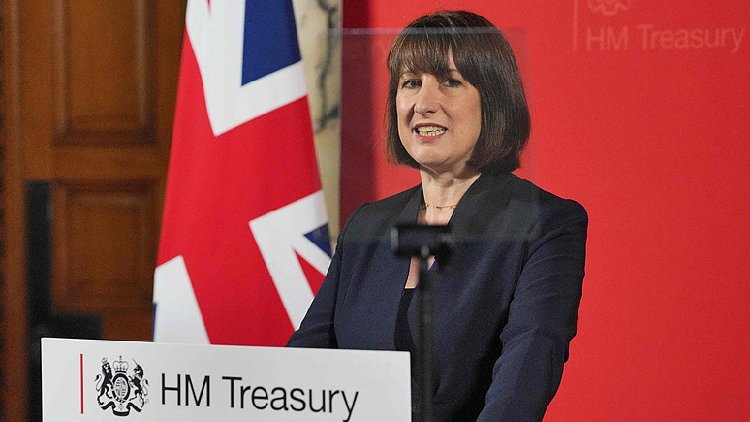'No compromise on regulation': UK sets firm boundaries for U.S. trade negotiations
British Chancellor of the Exchequer Rachel Reeves has reiterated the British government's position in advance of her meeting with U.S. Treasury Secretary Scott Bessent in Washington.

"Britain will not lower its standards or water down regulation in exchange for a trade deal with the U. S.," Reeves stated during a televised interview before her meeting with U.S. Treasury Secretary Scott Bessent in Washington.
Her comments mark the most definitive stance from the British government amid the renewed focus on trade discussions in light of increasing global trade tensions.
Reeves asserted that the UK's standards concerning food safety, digital protections, and road regulations are "non-negotiable," particularly because they are closely aligned with European Union norms. "We've just passed the Online Safety Act and the safety, particularly of our children, is non-negotiable for the British government," she added.
The Online Safety Act, established in 2023, mandates that tech companies implement stronger protections against harmful online content for children. Despite significant pushback from U.S. technology companies, Reeves emphasized that "compromise on the Online Safety Act has been ruled out," highlighting the government's firm stance on digital safety measures.
Selective concessions
Although the UK is resolute on non-tariff regulatory issues, it has indicated a willingness to consider specific concessions in other areas to encourage progress. Reports suggest that the British government is contemplating reducing tariffs on U.S. automotive imports from 10 percent to 2.5 percent, a move intended to foster goodwill while maintaining domestic safety standards.
In conjunction with this, Reeves introduced a new trade policy package during her visit to Washington for the annual Spring Meetings of the International Monetary Fund.
This trade package includes a review of the customs exemption for low-value imports, allowing goods valued under 135 pounds to enter the UK without duties. British retailers have long criticized this exemption, arguing that it gives foreign e-commerce platforms an unfair competitive edge. Stakeholder consultations on potential reforms are expected next month.
Furthermore, the British Trade Remedies Authority will receive additional resources to expedite investigations into unfair trading practices like the dumping of low-cost goods. The TRA will also focus on supporting small and medium-sized enterprises and enhance monitoring of trade data to better identify emerging threats to UK businesses.
Navigating between U.S. tariffs and EU alignments
"We must stand up for free and open trade – crucial to deliver our Plan for Change to make everyone better off. We must help businesses keep their access to trade around the world," Reeves remarked in Washington. "This government is meeting the moment to protect fair and open trade."
These announcements come as the UK navigates a changing global trade environment. U.S. President Donald Trump's "Liberation Day" tariffs have sparked protectionist sentiment, destabilized global markets, and increased Britain's borrowing costs, which heightens the urgency for London to diversify its trade and stabilize its economic future.
In parallel, the EU has adopted a more assertive approach to digital market regulation. Recently, EU regulators imposed fines totaling 700 million euros on Apple and Meta for breaches of the bloc's Digital Markets Act, signaling Brussels' commitment to regulating dominant U.S. tech firms under European laws.
Analysts suggest that the UK is strategically managing pressures from both sides of the Atlantic. "Lowering standards for the Americans would make that deeper alignment with the Europeans impossible," a recent analysis by Sky News noted.
Ian Smith for TROIB News
Discover more Science and Technology news updates in TROIB Sci-Tech












